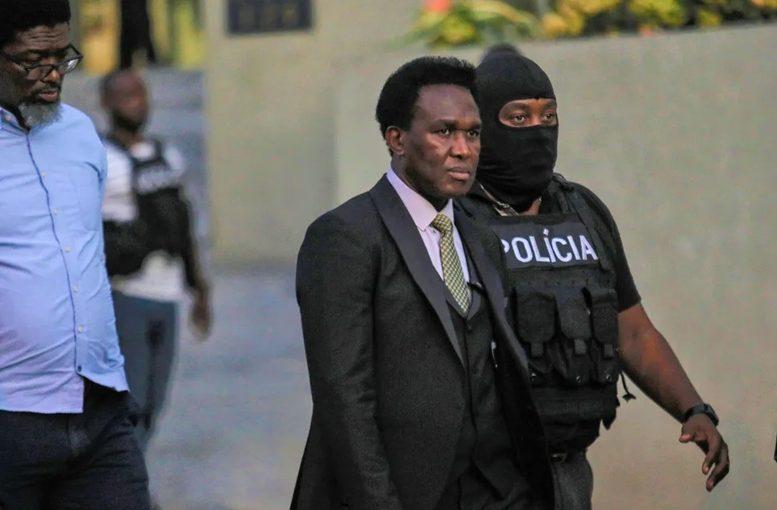Africa-Press – Mozambique. The legislation regulating the Council of State in Mozambique – which politician Venâncio Mondlane, accused of crimes of disobedience and terrorism in post-election protests, will join – provides for its members to be tried by the Supreme Court.
Law 5/2005, which regulates the organization of that body and defines the statutes of its members, consulted today by Lusa, states in its article 15 that these councillors have immunity and, in paragraph one, that “no member of the Council of State may be detained or arrested without the authorization of the Council, except for a crime punishable by imprisonment and in flagrante delicto”.
Paragraph 2 defines that, when “criminal proceedings are instituted against any member of the Council of State and the latter is definitively indicted by an indictment or equivalent, except in the case of a crime punishable by imprisonment, the Council shall decide whether or not the member should be suspended for the purposes of continuing the proceedings”.
In the case of Venâncio Mondlane, accused of five crimes, these carry a maximum penalty of more than 20 years in prison.
“A member of the Council of State enjoys special jurisdiction and is tried by the Supreme Court, in accordance with the law,” the same article further states, paragraph 3, while Article 16 stipulates that Council members “may not be witnesses, declarants, or experts without the authorization of the Council”.
Serious accusations
The first meeting with the current composition of the Council of State, for the term that begins this year following the general elections of October 9, 2024, has not yet taken place – initially scheduled for June 24 and later cancelled – but Venâncio Mondlane, as the second-most-voted-for candidate for President of the Republic, has an inherent seat in that advisory body to the head of state, as provided for in the Constitution.
The Mozambican Public Prosecutor’s Office (MP) accuses Venâncio Mondlane of calling for a “revolution” during the post-election protests, provoking “panic” and “terror” among the population, holding him responsible for the deaths and plunging the country into “chaos”.
In the indictment, delivered on Tuesday to the Attorney General’s Office (PGR) in Maputo against the former presidential candidate, and to which Lusa has had access, the MP cites, as a large part of its evidence, calls for protests, strikes, work stoppages, and mobilization for protests made on Venâncio Mondlane’s live social media feeds throughout the various phases of the challenge to the 2024 electoral process in Mozambique.
“The acts committed by the defendant seriously jeopardized fundamental legal rights, such as life, the physical and mental integrity of individuals, freedom of movement, public order, security, and tranquillity, as well as the normal functioning of public and private institutions,” it reads.
The Public Prosecutor’s Office charges Venâncio Mondlane, who does not recognize the election results, with “material and moral authorship, in a real concurrence of offenses,” for the crimes of public apology for crime, incitement to collective disobedience, public incitement to a crime, incitement to terrorism, and incitement to terrorism.
Crisis and pacification
Since the October elections, Mozambique has experienced a climate of social unrest, with demonstrations and strikes called by Mondlane, who rejects the election results that gave victory to Daniel Chapo, supported by the ruling FRELIMO party, as the fifth president.
According to non-governmental organizations monitoring the electoral process, approximately 400 people died as a result of clashes with the police, in addition to the destruction of public and private property, looting, and violence. Conflicts that ceased after meetings between Mondlane and Chapo on March 23 and May 20, aimed at pacification, were conducted.
According to the prosecution, “as a result of his statements, several citizens were deprived of basic services, public and private services were paralyzed,” and “the wave of protests and violence resulting from the defendant’s instructions resulted in the deaths of several citizens, the destruction of public and private property, and a feeling of public insecurity, panic, and terror among the general population.”
The Constitution defines the Council of State as a “political body for consultation with the President”, who presides over it, and which inherently includes the President of the Assembly of the Republic, the Prime Minister, the President of the Constitutional Council, the Ombudsman, the former Presidents of the Republic and the former Speakers of Parliament, among other personalities chosen by the Head of State and by the Mozambican Parliament.
For More News And Analysis About Mozambique Follow Africa-Press






